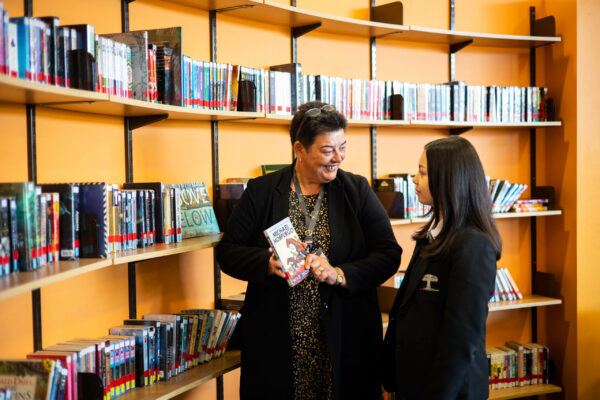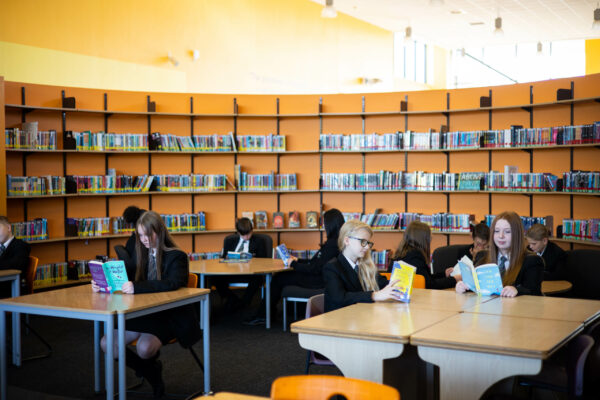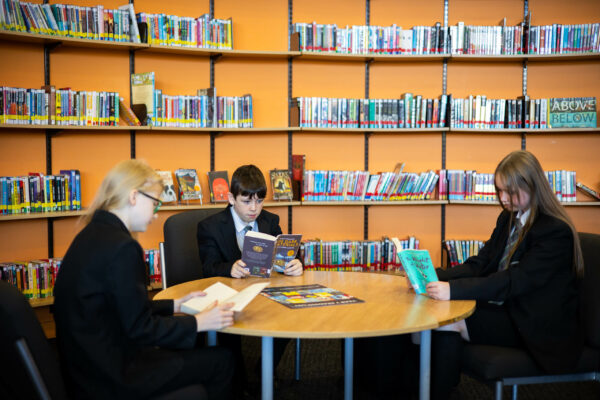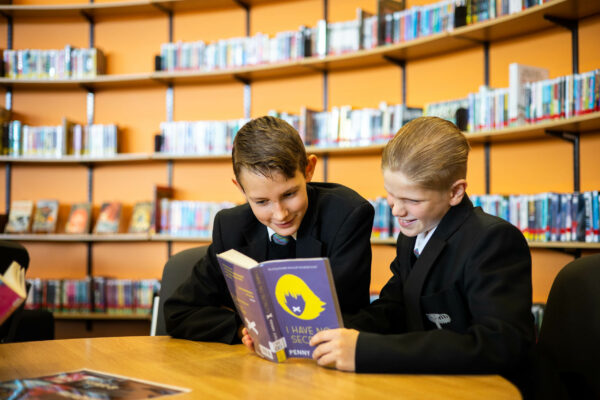Home Support
Talking to your child about the literacy they have been engaged with in College is the most important thing you can do. It is also important to encourage your child to read for 20-25 minutes per night.
Research indicates that students who read appropriately complex texts 25 minutes or more a day will grow academically at twice the rate of those reading less than 5 minutes daily Renaissance Learning (2014).
Reading
Reading for pleasure is a key way of improving literacy. Furthermore, reading is proven to improve self-esteem, as the reader becomes more knowledgeable of the world around them. In addition, reading improves concentration,
analytical thinking and memory skills. All of this combines to boost outcomes in all subject areas across college and therefore enhances a student’s life opportunities.
Having an established reading routine can be useful. For example, reading before bed can encourage a good nights sleep and is much healthier than screen time just before bed. If you child is a reluctant reader, then audio books, which they can listen to, are a good way for older students to get into reading.
What to read can be a barrier for some students. Choosing the right book is a challenge for some students. To aid this the college library has a wide range of both fiction and non-fiction books to choose from. Also, there is a wide range of books on the internet, many free which students can choose to read.
Writing
When your child is completing homework encourage them to check the work they have created, looking for basic literacy, such as spellings, capital letters and full stops. One technique to help with punctuation is for your child to read their work out loud, this will help identify where punctuation should go. If handwriting is clear and legible, the priority should be given to the speed of writing over neatness. Not getting enough down on the page within time limits can be a barrier to success for some of our students.
Speaking
Being a confident speaker is a key attribute for success in future life, be it for a presentation for a college interview or to come across confidently in a job interview.
Asking your child to read out loud their work to you and asking questions about the work is a good way of helping them improve their spoken commination.
GCSE Literacy
It important to note that many GCSE exams, not just English, award marks for SPAG (spelling, punctuation and grammar). To ensure success at GCSE, it is crucial that students can read the exam questions, understand them, and communicate clearly in their writing, often under stressful time pressures.
To maximise success at GCSE, encourage your child to keep reading fiction and non-fiction for pleasure.
Confident speaking skills are essential for learning and career development while studying GCSE. In English Language, students will have to deliver a spoken presentation to their class teacher, which may be filmed and is assessed for their GCSE Spoken Language grade. In Year 11, pupils will attend a mock interview with a local employer, as well as needing to apply for Post-16 places or partake in careers interviews. For success in all these areas, encourage your child to prepare and practise for their assessment and interviews.





